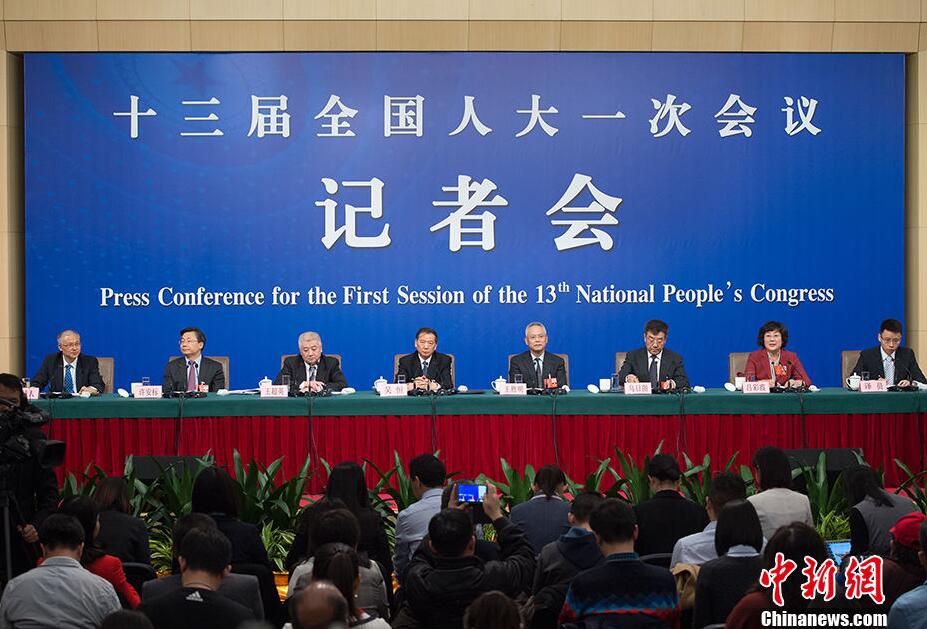
1. The five functions of the operating system are processor management, memory management, device management, file management and job management. Processor management The most basic function of processor management is to process interrupt events. After configuring the operating system, various events can be processed.
2. The main function of the computer operating system is process management, and its work is mainly process scheduling. In the case of a single user and a single taskNext, the processor is only monopolized by one user's task, and the process management work is very simple.
3. Operating System (abbreviation: OS) is a group of interrelated system software programs that supervise and control computer operation, use and run hardware, software resources and provide public services to organize user interaction.
4. Five major management functions of the operating system: (1) Job management: including tasks, interface management, human-computer interaction, graphical interface, voice control and virtual reality, etc. ( 2) File management: also known as information management. ( 3) Storage management: The essence is the management of storage "space", which mainly refers to the management of the main memory.
Any information system has five basic functions, namely: information collection and recording (input); information storage; information processing; information transmission; information output .
According to the functional introduction of the information system, the information system has five basic functions: input, storage, processing, output and control. Different functions have different functions, such as input function: the input function of the information system is determined by the purpose to be achieved by the system, the ability of the system and the permission of the information environment.
Five basic functions of the information system: input, storage, processing, output and control. Input function: The input function of the information system is determined by the purpose to be achieved by the system, the ability of the system and the permission of the information environment.Storage function: Storage function refers to the ability of the system to store various information and data. Mainly including: statistical functions.
The operating system has five functions: processor management: mainly controls and manages the work of the CPU. Storage management: mainly allocate and manage memory. Device management: mainly manage basic input and output devices. File management: responsible for the organization, storage, operation and protection of computer files.
The functions of the computer operating system include: processor management, memory management, device management, file management, job management and other functional modules. Processor management. The most basic function of processor management is to handle interrupt events. The processor can only detect interrupt events and generate interrupts and cannot process them.
The main function of the computer operating system is process management, and its main work is process scheduling. In the case of a single user and a single task, the processor is only monopolized by one user's task, and the work of process management is very simple.
The main functions of the operating system are process and processor management, job management, storage management, device management and file management, as follows: process and processor management. Because the execution of the program must rely on the processor, only one program flow can be processed and executed at any time. Homework management.
I) Processor management The most basic function of processor management is to handle interrupt events. The processor can only detect interrupt events and generate interrupts, and cannot handle these interrupt events. After configuring the operating system, all types of events can be handled.Another function of processor management is processor scheduling.
Five management functions of the operating system: job management: including tasks, interface management, human-computer interaction, graphical interface, voice control and virtual reality, etc. File management: also known as information management. Storage management: The essence is the management of storage "space", which mainly refers to the management of the main memory.

The storage management function of the operating system is to manage memory resources. It mainly realizes memory allocation and recovery, storage protection and memory expansion. The device management of the device management operating system is responsible for allocating and recycling external devices, and controlling external devices to operate according to the requirements of user programs.
The functions of the computer operating system include: processor management, memory management, device management, file management, job management and other functional modules. Processor management. The most basic function of processor management is to handle interrupt events. The processor can only detect interrupt events and generate interrupts and cannot process them.
The five functions of the operating system are processor management, memory management, device management, file management and job management.Processor management The most basic function of processor management is to process interrupt events. After configuring the operating system, various events can be processed.
OKX Wallet APK-APP, download it now, new users will receive a novice gift pack.
1. The five functions of the operating system are processor management, memory management, device management, file management and job management. Processor management The most basic function of processor management is to process interrupt events. After configuring the operating system, various events can be processed.
2. The main function of the computer operating system is process management, and its work is mainly process scheduling. In the case of a single user and a single taskNext, the processor is only monopolized by one user's task, and the process management work is very simple.
3. Operating System (abbreviation: OS) is a group of interrelated system software programs that supervise and control computer operation, use and run hardware, software resources and provide public services to organize user interaction.
4. Five major management functions of the operating system: (1) Job management: including tasks, interface management, human-computer interaction, graphical interface, voice control and virtual reality, etc. ( 2) File management: also known as information management. ( 3) Storage management: The essence is the management of storage "space", which mainly refers to the management of the main memory.
Any information system has five basic functions, namely: information collection and recording (input); information storage; information processing; information transmission; information output .
According to the functional introduction of the information system, the information system has five basic functions: input, storage, processing, output and control. Different functions have different functions, such as input function: the input function of the information system is determined by the purpose to be achieved by the system, the ability of the system and the permission of the information environment.
Five basic functions of the information system: input, storage, processing, output and control. Input function: The input function of the information system is determined by the purpose to be achieved by the system, the ability of the system and the permission of the information environment.Storage function: Storage function refers to the ability of the system to store various information and data. Mainly including: statistical functions.
The operating system has five functions: processor management: mainly controls and manages the work of the CPU. Storage management: mainly allocate and manage memory. Device management: mainly manage basic input and output devices. File management: responsible for the organization, storage, operation and protection of computer files.
The functions of the computer operating system include: processor management, memory management, device management, file management, job management and other functional modules. Processor management. The most basic function of processor management is to handle interrupt events. The processor can only detect interrupt events and generate interrupts and cannot process them.
The main function of the computer operating system is process management, and its main work is process scheduling. In the case of a single user and a single task, the processor is only monopolized by one user's task, and the work of process management is very simple.
The main functions of the operating system are process and processor management, job management, storage management, device management and file management, as follows: process and processor management. Because the execution of the program must rely on the processor, only one program flow can be processed and executed at any time. Homework management.
I) Processor management The most basic function of processor management is to handle interrupt events. The processor can only detect interrupt events and generate interrupts, and cannot handle these interrupt events. After configuring the operating system, all types of events can be handled.Another function of processor management is processor scheduling.
Five management functions of the operating system: job management: including tasks, interface management, human-computer interaction, graphical interface, voice control and virtual reality, etc. File management: also known as information management. Storage management: The essence is the management of storage "space", which mainly refers to the management of the main memory.

The storage management function of the operating system is to manage memory resources. It mainly realizes memory allocation and recovery, storage protection and memory expansion. The device management of the device management operating system is responsible for allocating and recycling external devices, and controlling external devices to operate according to the requirements of user programs.
The functions of the computer operating system include: processor management, memory management, device management, file management, job management and other functional modules. Processor management. The most basic function of processor management is to handle interrupt events. The processor can only detect interrupt events and generate interrupts and cannot process them.
The five functions of the operating system are processor management, memory management, device management, file management and job management.Processor management The most basic function of processor management is to process interrupt events. After configuring the operating system, various events can be processed.
Binance Download for PC Windows 10
author: 2025-01-23 12:08 Okx app download
Okx app download
678.76MB
Check OKX Wallet apk download
OKX Wallet apk download
437.44MB
Check OKX Wallet extension
OKX Wallet extension
891.75MB
Check OKX Wallet login
OKX Wallet login
144.78MB
Check OKX Wallet download
OKX Wallet download
129.34MB
Check Binance market
Binance market
275.89MB
Check Binance Download for PC Windows 10
Binance Download for PC Windows 10
387.21MB
Check Binance US
Binance US
981.55MB
Check Binance login
Binance login
874.88MB
Check OKX Wallet to exchange
OKX Wallet to exchange
821.95MB
Check OKX Wallet
OKX Wallet
756.21MB
Check OKX Wallet login
OKX Wallet login
171.96MB
Check Binance app download Play Store
Binance app download Play Store
857.53MB
Check Okx app download
Okx app download
264.91MB
Check Binance download Android
Binance download Android
814.65MB
Check OKX Wallet download
OKX Wallet download
248.54MB
Check Binance login
Binance login
178.25MB
Check OKX Wallet login
OKX Wallet login
743.53MB
Check OKX Wallet app
OKX Wallet app
619.56MB
Check OKX Wallet login
OKX Wallet login
376.27MB
Check Binance APK
Binance APK
291.12MB
Check Binance Download for PC
Binance Download for PC
256.84MB
Check Binance download iOS
Binance download iOS
548.16MB
Check Binance market
Binance market
328.42MB
Check Binance APK
Binance APK
484.57MB
Check okx.com login
okx.com login
762.97MB
Check Binance app download Play Store
Binance app download Play Store
749.68MB
Check OKX Wallet extension
OKX Wallet extension
429.54MB
Check OKX Wallet apk download latest version
OKX Wallet apk download latest version
633.51MB
Check OKX Wallet
OKX Wallet
868.77MB
Check Binance Download for PC
Binance Download for PC
713.88MB
Check Binance download
Binance download
814.58MB
Check okx.com login
okx.com login
576.98MB
Check OKX Wallet apk download latest version
OKX Wallet apk download latest version
935.12MB
Check OKX Wallet apk download
OKX Wallet apk download
251.21MB
Check OKX Wallet
OKX Wallet
587.85MB
Check
Scan to install
OKX Wallet APK to discover more
Netizen comments More
2061 佳儿佳妇网
2025-01-23 12:43 recommend
608 粗心大意网
2025-01-23 12:36 recommend
1827 四肢百骸网
2025-01-23 11:49 recommend
1166 百无禁忌网
2025-01-23 10:51 recommend
1582 四通五达网
2025-01-23 10:18 recommend